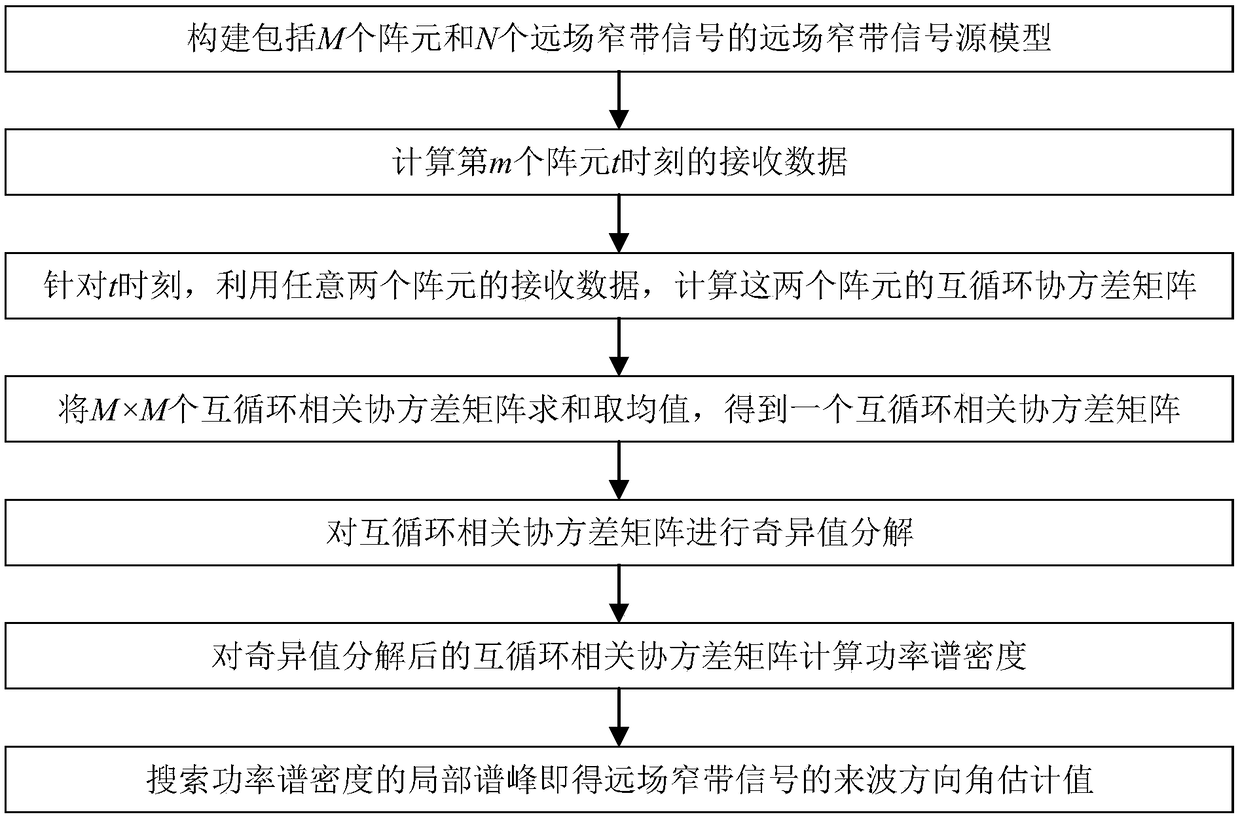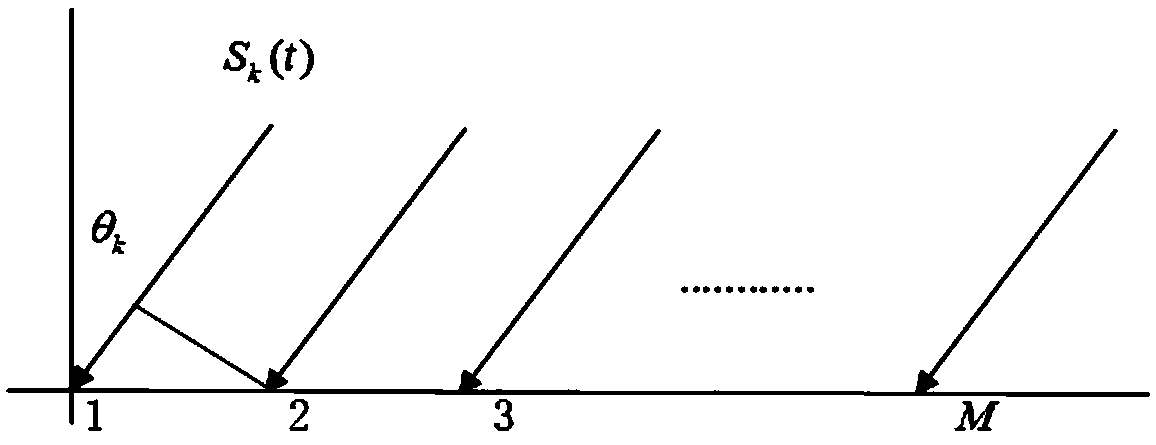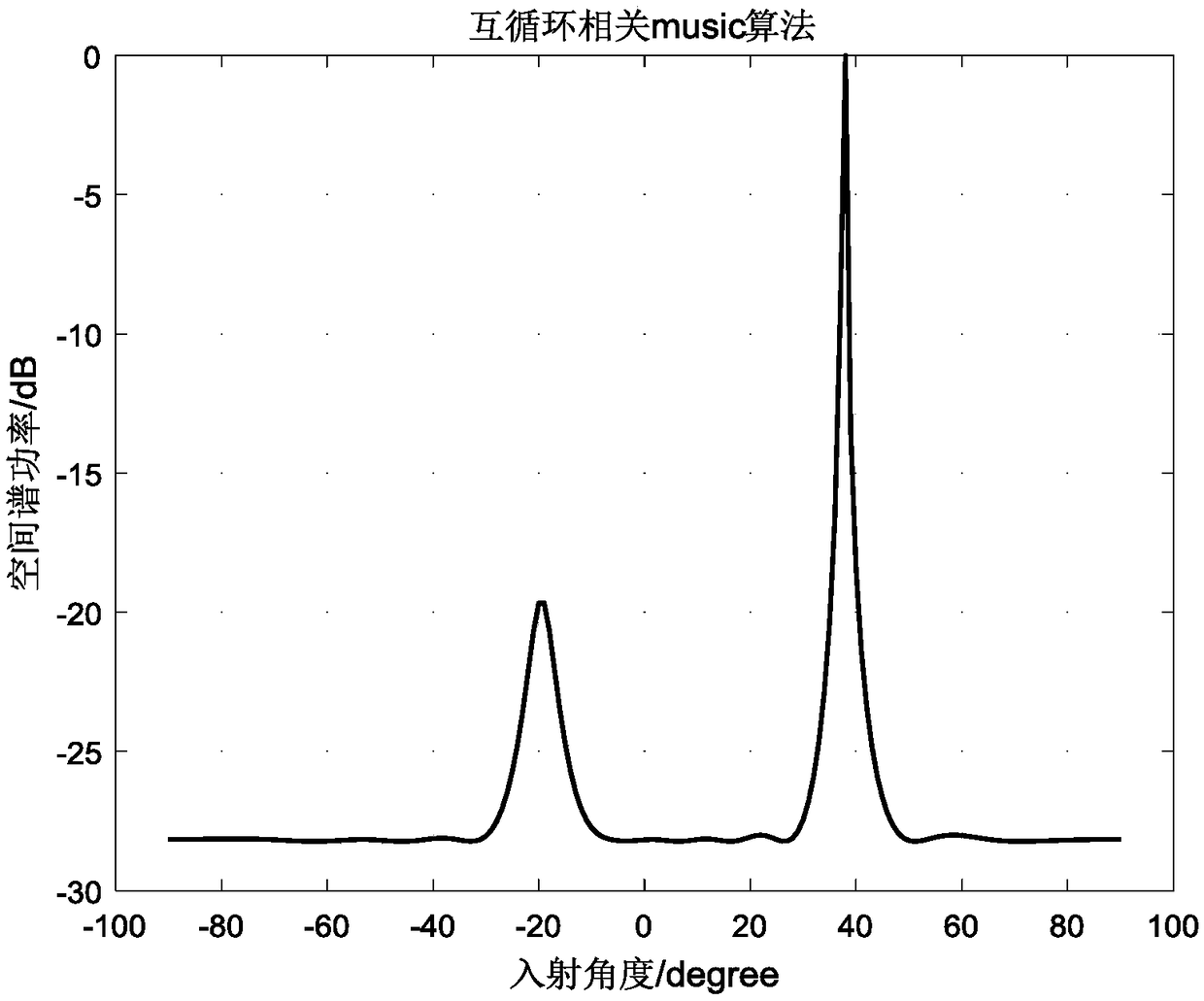Method for estimating source number and incoming wave direction angle based on cross-cyclic correlation MUSIC algorithm in impulse noise environment
A technology of impulse noise and direction of arrival, applied in radio wave direction/deviation determination system, directional device for measuring direction, direction finder using radio wave, etc., can solve the problem of low-frequency noise affecting accuracy, high robustness, etc. question
- Summary
- Abstract
- Description
- Claims
- Application Information
AI Technical Summary
Problems solved by technology
Method used
Image
Examples
Embodiment Construction
[0038] The present invention will be further described in detail below with reference to the drawings and embodiments.
[0039] When the impulse noise is further improved and the generalized signal-to-noise ratio GSNR of the array received data is further reduced, the low-frequency noise introduced by the autocorrelation will affect the accurate performance of the DOA estimation. The present invention is based on the cross-correlation theory and interleaving ideas, interleaving array elements, and calculating the receiving array Through arithmetic fusion, multiple sets of cross-circular correlation covariance matrix are merged into a cross-circular correlation covariance matrix, replacing the covariance matrix in the traditional MUSIC algorithm, and then performing singular value decomposition. The cross-cyclic correlation covariance matrix is decomposed into signal subspace and noise subspace, the power spectrum of the received data is calculated, and the power spectrum is sear...
PUM
 Login to View More
Login to View More Abstract
Description
Claims
Application Information
 Login to View More
Login to View More - R&D
- Intellectual Property
- Life Sciences
- Materials
- Tech Scout
- Unparalleled Data Quality
- Higher Quality Content
- 60% Fewer Hallucinations
Browse by: Latest US Patents, China's latest patents, Technical Efficacy Thesaurus, Application Domain, Technology Topic, Popular Technical Reports.
© 2025 PatSnap. All rights reserved.Legal|Privacy policy|Modern Slavery Act Transparency Statement|Sitemap|About US| Contact US: help@patsnap.com



